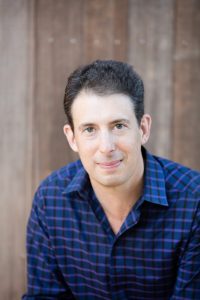
During a brutal heatwave in Chicago in July 1995, which killed 739 people, some areas of the city fared better than others.
In Englewood and Auburn Gresham, two neighborhoods that border each other in Chicago’s South Side, the number of people who died in the heat wave varied drastically, despite the fact that both neighborhoods had high rates of poverty, unemployment and crime.
In Englewood, there were 33 deaths out of 100,000 residents. In Auburn Greshman, there were just three deaths out of every 100,000 residents.
In his book, Palaces for the People: How Social Infrastructure Can Help Fight Inequality, Polarization, and the Decline of Civic Life, published last year, sociologist Eric Klinenberg argues that the dramatic difference in the death rate in these two seemingly similar places can be attributed to the presence or lack of social infrastructure in the community — places like libraries, playgrounds and coffee shops.
Klinenberg will discuss the effect of social infrastructure on communities at the 10:45 a.m. lecture Friday, July 5 in the Amphitheater, closing out Week Two, “Uncommon Ground: Communities Working Toward Solutions.”
“People forge bonds in places that have healthy social infrastructures — not because they set out to build community, but because when people engage in sustained, recurrent interaction, particularly while doing things they enjoy, relationships inevitably grow,” Klinenberg wrote in Palaces for the People.
These relationships are incredibly helpful in disaster situations, such as the 1995 Chicago heat wave. When people feel more connected to their communities, they are more likely to check in on each other. This is especially helpful when it comes to residents who are elderly, sick or live alone, and might be in need of help.
“During the heat wave, the people of Englewood were vulnerable not just because they were black and poor, but also because their neighborhood had been abandoned,” Klinenberg wrote. “The residential blocks looked and felt ‘bombed out,’ and the social infrastructure that had once supported collective life had deteriorated.”
Klinenberg is a professor of sociology and director of the Institute for Public Knowledge at New York University. His research focuses on cities, climate change, culture, politics, media technology and social policy. He has published work in a number of journals, and his writing has appeared in publications such as The New Yorker, The New York Times and The Wall Street Journal.
Before Palaces for the People, Klinenberg authored Going Solo: The Extraordinary Rise and Surprising Appeal of Living Alone; Fighting for Air: The Battle to Control America’s Media; and Heat Wave: A Social Autopsy of Disaster in Chicago.
Klinenberg argues that there are myriad benefits of people living in more interconnected communities.




